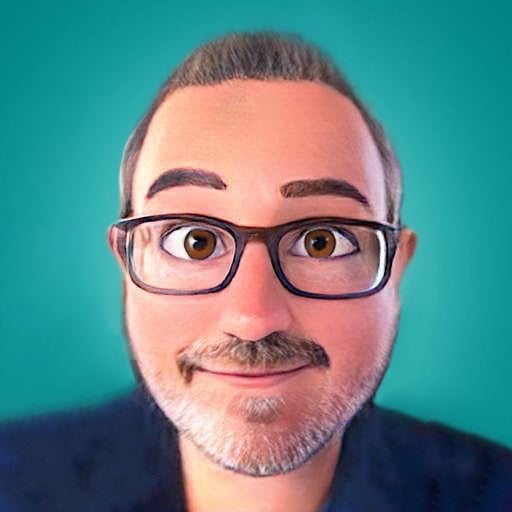I’ve got a job interview on Tuesday and I haven’t had one for a while due to a period of unemployment because of family health issues.
One part of interviews I’ve always struggled with is when they first ask you to tell them about yourself. I struggle to talk about myself anyway and never know what they’d like me to actually say, whether it’s about me as a person or about my work history.
So any tips or tricks would be welcome.
“To truly understand, we’ll have to go back to the summer of 1979…”
This is even better if you weren’t born until far after 1979.
Or nine months after the summer of '79. But start there in great detail.
Picture it, Sicily, 1912…
“Picture it, Sicily, 1912…” “Now erase that completely from your mind, and picture Gary, Indiana, 2023. You’re right, that’s me.”
“You’re probably wondering how I got here…”
I spend time highlighting how my past experience relates to the job and what I like about the place or job specifically. Depending on the vibe in the room I will add one quick, interesting, and nonoffensive thing about my personal life at the end. Basically recapping a cover letter but in a personable way because my writing is dry
I grew up in a place and went to school somewhere. My hobbies include several things that demonstrate commitment and ambition. My values exactly match those of this company. My biggest dream in life is to work hard to make your shareholders lots of money.
Thanks, ChatGPT! Now, please use keywords from the job posting and sync the result with examples from my resume. Keep the tone professional, confident, yet approachable.
I work in a job where I have to introduce myself quite a lot. For a longer introduction like you would in an interview, I do the following:
-
General statement about my career, one liner
-
the professional topics I’m most interested, 3 or 4 bullet points
-
a brief walk through my resume: what I studied (one liner) and where I worked, no longer than 1 minute total
-
what am I doing currently, responsibilities, likes and dislikes, no more than a minute, they’ll ask you more about it later
-
some personal details: family, kids, hobbies, favorite {teams, sports, countries, movies, whatever} keep it to 20-30 seconds
Total under 3 minutes
For a shorter one, like in a 1h zoom call:
-
name, position (and description of the position if unusual), tenure.
-
any relationship to the people in the call (I’m a customer of yours, my first car was from you, I would love to buy gizmo some day, etc)
-
background info: previous jobs or studies if relevant (oh, i used to work in industry in college, etc)
-
one hobby if relevant, or if it is in your background (movies, books, sports, photography, whatever)
Total 15 to 30 seconds.
-
Having taught courses on interview techniques, I’d say the quick advice is - remember that for all the questions they ask, they are not primarily interested in you answering the specific question, they are trying to provide an opportunity or a challenge to hear how you fit their idea of a good candidate for the post.
So they don’t care about knowing you as a person, they want to hear you’re “innovative” or “ambitious” or “compassionate” (depending on the post), with a little anecdote or explanation that shows you understand what that trait means. "I guess some people might call me driven, because from a young age I’ve always want to be the best at everything. But personally it’s not just about being ‘ambitious’, when I’m passionate about something then I really want to do my best at it, that’s why I love learning new approaches and methods to improve my skills, and love working in an industry like ours with so much potential. And from what I understand about your company… " blah blah blah.
It defintely doesn’t need to be all bragging and corporate speak (unless that’s your work field) but most people do better at interviews once they realise the questions are just the superficial layer, and yoh don’t need to worry about them too much. You should answer them (otherwise you seem like you have poor communication skills) but the content of them is just your chance to show off skills and qualities that they want, and to show you understand the job and industry you’re in. Having a close read of the job description, company’s values and other info should reveal a bunch of target traits that they want to hear about from you.
I’d recommend looking on YouTube, “Life After Layoff” has some good interview advice. There’s many more, but that’s the one I remember right now.
Generally, the response should be related to you’re “professional life”, not your private one. They don’t care that you have 6 brothers and sisters and like to hike - your looking for a job, not a date. If your job happened to be for a national park baby sitting children, then your personal life just became much more relevant.
This question can be used to naturally lead into the “where do you see your self in 5 years” question, by talking about some of your career goals (if relevenat). Let’s say your goal is to be a park ranger, and the job your appling is to go around the park cleaning up - that’s a reasonable jump. If your planning to leave the job after a bit, don’t tell them anything to make it obvious.
If you can bring relevant past expirances of things you did (not just job title) into the conversation that’s good. Maybe you used to work at the local park keeping it clean from the local teens, advocated for trashbins to be installed and you want to continue taking care of nature on a larger scale.
Obviously those examples are completely made up, but including expirances to your responces can make a huge difference.
When I was in your position I was honest about it and detailed what my ‘work’ was in caring for my mom.
I suppose it did help that I was looking to be hired at a group home so the skills lined up.
But showing that you’re motivated, care, and are detail oriented in your personal life can speak volumes about you while also covering for the gaps in your employment history.
It’s difficult to do but you can practice in front of a mirror. All shaggy dig stories should be at least 30 minutes in length and end with a lich ness monster asking you for about tree fiddy.
Realistically, these people are thinking “I’m going to have to talk to this person at the coffee pot every day, please dear mother Theresa I hope he’s got something more interesting to talk about than Dave who only discussed work and his commute”
They want to know how you’ll fit culturally, or rather, will you be additive? What’s something interesting about you or a hobby you have? What’s a funny story that might happen to you in the weekend that they might find some interesting?
I think often times the question are well intentioned but to some degree they are also fishing for things they can’t legally ask like are you planning to get pregnant soon, will you be a flake because you have sick kids or a parent you’re taking care of, planning to retire soon. Are you a job hopper. Will investing time and training in you worth it for us. I was always dumb and just answered those questions mostly honestly but they just listen for signs you won’t be a model slave in some cases.
I tried to get a position I was overqualified for once and told them I was looking forward to not being a manager, not having to have every employee be my problem, be able to take time off without coming back with a mess…take a weekend off now and then…be a great fucking employee and then clock the fuck out.
Their questions got really shitty and it was very clear they were twisting everything I said into meaning I wasn’t a team player. Bullshit I’m the best player on every team I’ve ever been on at work.
Long story short, don’t answer questions like that honestly. Don’t be honest about anything. Lol
This isn’t a trick question, literally tell them about yourself.
I usually start with my current job role, a couple of recent acheivements, and then where I want to go next and why. So for a fictitious example you might say -
“I’m currently a junior designer at Smiths Design, I’ve recently been involved in the rebrand and was responsible for the new colour scheme that recieved positive press in our industry journal, I feel like I’d like to move more into the development of brands as that’s where I think my strengths lie so that’s why I thought this company was a great fit”
For you, you can either talk about your previous roles or you can mention your role as a carer for your family because that’s a real job too even though it isn’t paid.
I used to answer this question talking about myself but then someone advised me to actually talk about my work history. I’ve talked about my work history since and my interviews have gone a lot smoother.
“Well, I’m pretty good at karaoke, and I make a good gimlet. Here’s a list of local bars I like. This one’s got a good brisket…”
Smile and say “Well… personally or professionally?” then have a quick 1-2 minute script ready to go.
Professionally: “You know how there’s always that one person in the office that everyone WANTS to go to because they know how to get things done? That’s me! Not in a ‘oh no, now I have to go talk to Jack’ it’s ‘oh, yeah, Jack will totally have that! Let’s talk to them!’”
Personally: Just tell your story in a couple of minutes.
This is the interviewer giving you the ability to write the narrative as to why you should be hired.
For this, you want to start with your name, give educational and work experience that would be relevant to the job, and say why you have a gap in your resume (and you have a pretty good reason). Keep it under a minute and think of it as giving them a high level reason why they would want to hire you.
Potentially you could say that you were investigating re-training and doing Udemy courses if you wanted to make it sound like you were not just sitting on your hands in the employment gap.
To be honest, as someone who has been sitting on the other side of the desk doing a lot of interviews on behalf of my company recently, I don’t really pry into the employment gaps. A lot of people put on their CV that they were focusing on their family commitments during the gap and there’s no real reason to question it. Employers are interested on the relevant experience that the candidate has over their entire career as opposed to just the last position they held.







